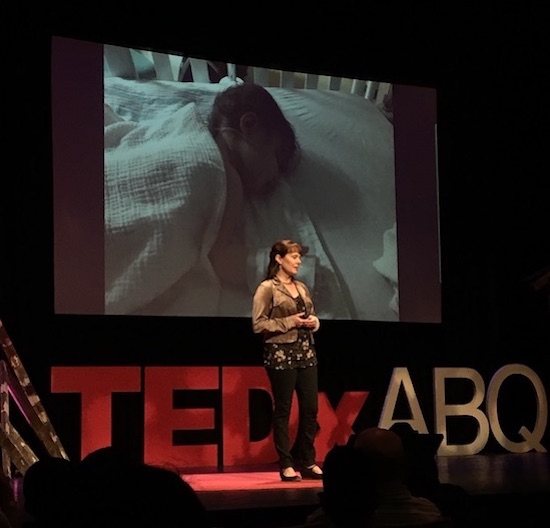Researcher finds emotion regulation can help with PTSD and substance abuse
Patterns of emotion regulation strategies can affect posttraumatic stress disorder and substance use behavior according to Dr. Pilar Sanjuan, a UNM research assistant professor for the Center on Alcoholism, Substance Abuse and Addictions and the Psychology Department, who explained her research during her TEDxABQ talk Sept. 29, 2018.
Sanjuan began the TEDxABQ talk by showing a photo of a child at a hospital. She told the audience to imagine that the child had been sick for a while and could be taking her last breath. She then asked the audience to imagine that the child had just overcome an illness and could be be able to go home with her family. Using this exercise, Sanjuan demonstrated the extent that our perceptions and thoughts affect our emotions.
“My projects use neuroimaging and mobile assessment technology and primarily are focused on examining how emotion regulation underlies posttraumatic stress disorder, alcohol and drug use problems, and the co-occurrence of the two,” Sanjuan said.
Sanjuan hopes that her research will allow her to recognize how emotion regulation patterns work against the effects of PTSD or are protective against substance use problems.
Looking towards the future, Sanjuan plans to continue her research in collaboration with the Mind Research Network, UNM Transdisciplinary Research, Equity and Engagement (TREE) Center for Advancing Behavioral Health, Young Women United, and the UNM HSC Department of Family and Community Medicine.
“We have a study we are just starting that is funded by the UNM TREE Center working with Young Women United and the UNM Milagro Program to test the feasibility of providing support through a doula program to pregnant women in treatment for substance use disorders,” Sanjuan said.

